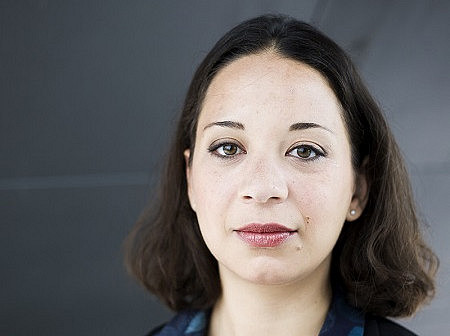Lucia Agaibi
Lucia Agaibi is working on a dissertation in the 'Historical Musicology' department at the scientific doctoral school of the University of Music and Performing Arts Graz and has written a master's thesis entitled "Zur aktuellen Bedeutung von Max Schelers Ressentimentanalyse" (July 2018).

PELP as a catalyst for musicology
I studied musicology at the University of Music and Performing Arts Graz and the University of Graz and completed my master's degree with distinction in 2017. I also completed a master's degree in PELP at the University of Graz. I am currently working on my dissertation in the field of historical musicology at the academic doctoral school of the University of Music and Performing Arts Graz.
The decisive factor in my decision to study PELP was my Erasmus semester at Lund University in Sweden in 2012. There I took a course on modernism and postmodernism, which gave me an awareness of how important an engagement with philosophy, history and politics is for my own musicological research. I deal with polystylistic works from Austria after 1945. The attempt to adequately describe these works requires a thorough examination of the political and philosophical tendencies of the 20th century, because this posed major new challenges not only for the audience of Western art music, but above all for composers. The belief that music was the only autonomous art form that constituted its own realm, completely detached from external influences, proved to be a massive problem. This problem was addressed in at least two ways. On the one hand, the idea of aesthetically autonomous music - decoupled from worldly concerns - was transformed into an idea of the world as an object that we should understand with aesthetic recognition: Everything we hear can be music. On the other hand, from the late 1950s onwards, it was reconsidered and rejected by some composers as a reaction to the dogmatism of the leading Darmstadt avant-garde, which adhered to the principle of autonomy. Both approaches lead us in different ways and not always explicitly intended by the composers as socio-political criticism, but sometimes received accordingly by the audience, to a characteristic of postmodern art music, which often no longer sees itself as autonomous, but as relevant to the cultural, social and political context. Some artists in the 60s and 70s were convinced that art and musicality could show a viable way out of consumer society, as Cornelius Cardew's 1974 book "Stockhausen Serves Imperialism" testifies.
The PELP course was a useful and productive addition for me. Of course, not all the courses have fed into my musicological work, but it has been delightful to gain insights into different disciplines, to develop new interests and skills, and to get to know and categorize my own (everyday) viewpoints anew, sometimes as the tips of huge theoretical icebergs, which I consider a valuable tool, because knowing the background to a banal viewpoint that you somehow adopt from someone at some point makes it easier to reflect on how much you yourself agree with holding it.